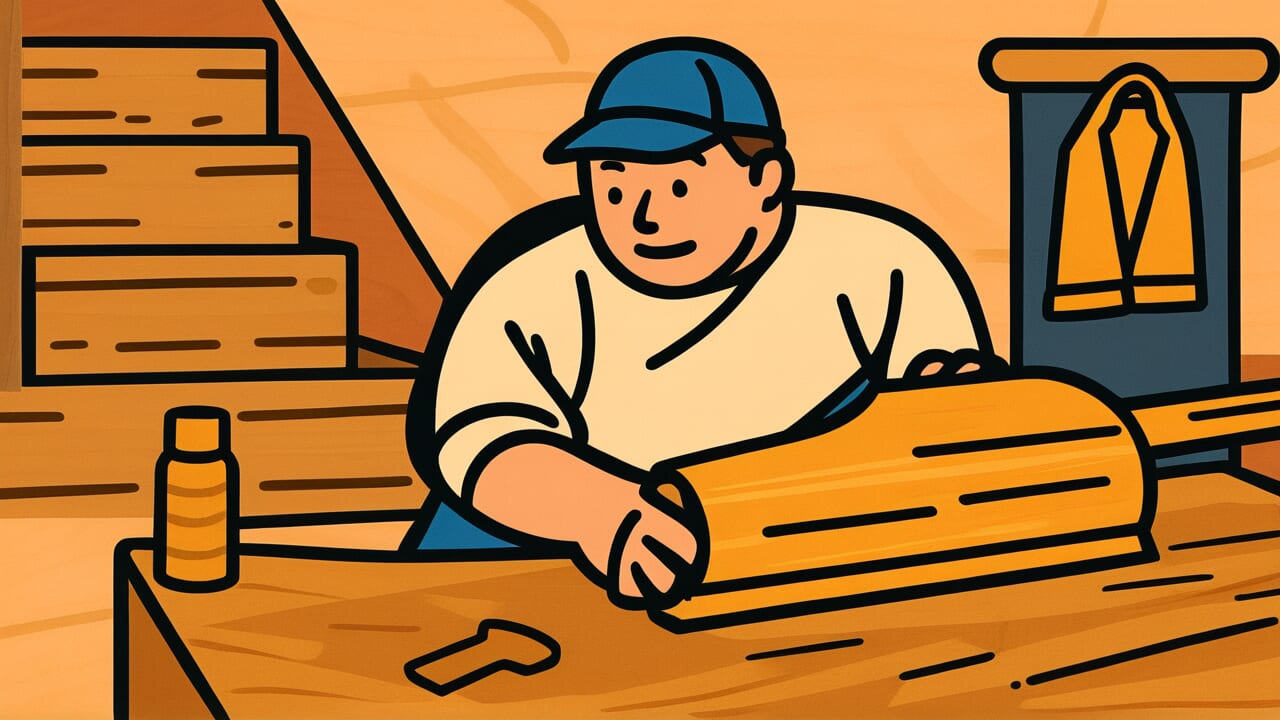How to Read “Those who carve in place of a master craftsman rarely avoid injuring their hands”
Taishō ni kawarite kezuru mono wa sono te wo kizutsukezaru aru koto mare nari
Meaning of “Those who carve in place of a master craftsman rarely avoid injuring their hands”
This proverb means that amateurs who try difficult work in place of experts tend to fail. When unskilled people casually take on advanced tasks that skilled craftsmen or specialists should handle, they face high risks of injury or failure.
People use this saying to warn someone about to take on work beyond their abilities. It also cautions against making amateur judgments in matters that should be left to professionals.
The proverb is often quoted when emphasizing the importance of expertise in each field.
In today’s world, where information is easily available online, this proverb carries even more weight. Knowledge and actual skill are different things.
This saying reminds us of the dangers of attempting specialized work just by copying what we’ve seen.
Origin and Etymology
This proverb is believed to come from the ancient Chinese text “Laozi,” Chapter 74. The original text reads “代大匠斲者、希有不傷其手矣,” which was transmitted to Japan and became established there.
“Taishō” refers to an excellent master carpenter, meaning a highly skilled specialist. “Kezuru” means to carve or cut wood, representing work that requires advanced technique.
Through these words, Laozi explained the danger of amateurs casually stepping into the domain of experts.
Laozi’s philosophy emphasized respecting the natural order and specialization. A skilled carpenter masters tool handling, force control, and wood assessment through years of training.
But when an unskilled person tries to substitute, injuring their hands with sharp blades is a natural consequence.
This teaching goes beyond mere technical discussion. Each field has wisdom and skills that only masters possess.
The proverb contains a warning against treating these lightly and copying them carelessly. In Japan, Confucian scholars of the Edo period quoted it.
It has been cherished within a culture that respects specialization.
Interesting Facts
The character “kezuru” that appears in this proverb is one of the difficult-to-read characters rarely used in modern times. It combines the wood radical with “stone” and “kin” (axe).
This character expresses the act of carving wood with an axe or hatchet. It truly represents the essence of carpentry work in a single character.
In China during Laozi’s time, woodworking techniques were highly developed. Craftsmen had skills to construct complex buildings without using a single nail.
The respect for craftsmen with such advanced techniques is thought to be the background of this proverb.
Usage Examples
- An amateur attempting DIY electrical work is like “Those who carve in place of a master craftsman rarely avoid injuring their hands”
- Medical procedures should be left to specialists, and we should remember the saying “Those who carve in place of a master craftsman rarely avoid injuring their hands”
Universal Wisdom
The universal wisdom this proverb conveys touches on the essence of specialization and humility in human society. Why do people try to step into domains beyond their abilities?
The reasons vary: overconfidence, curiosity, or economic motives to avoid hiring specialists.
However, our ancestors discovered one truth through long history. No skill can be acquired overnight.
Behind expert technique lie countless failures, learning experiences, and accumulated time. Carelessly imitating without understanding this weight not only endangers yourself.
It also shows a lack of respect for the skill itself.
This proverb has been passed down through the ages because humans have always faced the temptation of “I should be able to do this” optimism and “consulting experts is troublesome” convenience.
Even in our modern age of advancing technology and overflowing information, acquiring genuine skills still requires time and effort. Our ancestors continue to convey this unchanging truth to us in simple words.
When AI Hears This
Looking at a master’s technique physically, you find they’re actually working in a “barely safe danger zone.” For example, when carving wood, if the blade’s angle changes from 45 to 46 degrees, the probability of the blade slipping and cutting your hand suddenly jumps.
This resembles a snowy mountain just before an avalanche. One more snowflake and everything collapses.
What makes masters amazing is their ability to stop precisely just before this “one step from collapse critical point” every time. They insert the blade at 45.8 degrees, not 46 degrees.
They also stop force application at 98 percent of the wood’s breaking limit. This achieves the most efficient carving.
Masters actually produce their best performance in places adjacent to danger.
Meanwhile, when amateurs imitate the same angle and force, they have too few controllable variables and the system rapidly destabilizes. Even copying just the blade angle, there are over ten elements to manage simultaneously.
These include wood moisture, blade friction coefficient, and fine grip force adjustments. If even one element deviates, it exceeds the critical point and “phase transition” occurs.
The blade goes wild and injures the hand.
In other words, expertise is the ability to control multiple variables simultaneously right at the critical point. That’s why master techniques can never be reproduced just by watching.
Lessons for Today
What this proverb teaches us today is the importance of having courage to know your limits and an attitude that respects specialists. In our information-saturated age, we feel like we can do anything ourselves.
But true wisdom is the ability to discern what you can and cannot do.
When you challenge something new, calmly judge whether it’s within the hobby range or a domain you should leave to specialists. Doing it yourself isn’t always the right answer.
Sometimes borrowing a specialist’s power is the wisest choice.
At the same time, this proverb teaches the value of polishing our own expertise. Skills you’ve acquired through time investment are precious assets that cannot be easily imitated.
Efforts to master your path will never be wasted. Walk through your life maintaining balance between humility and the desire to improve.



Comments